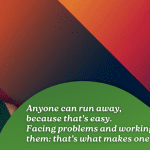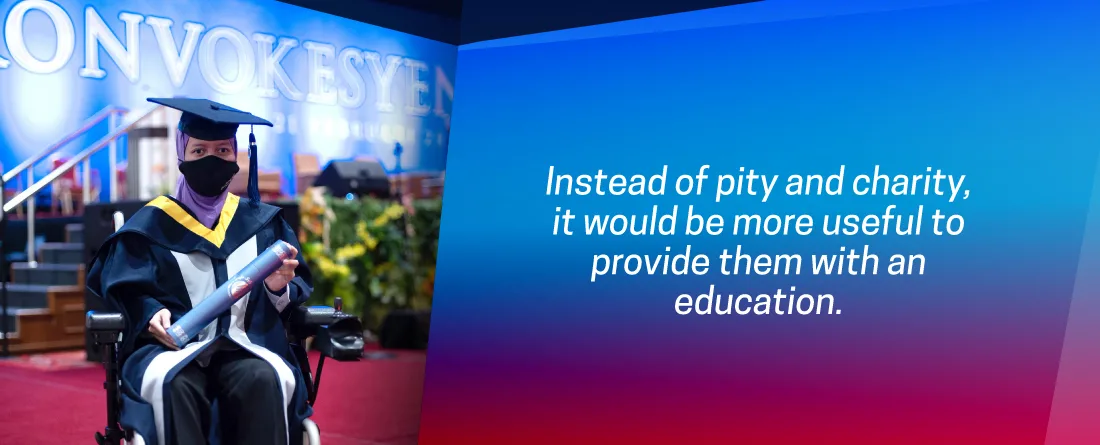Although the above findings of studies are from the United States, they show that PWDs are capable of holding a job. So, instead of pity and charity, it would be more useful to provide them with an education that could empower them to find employment. Work will benefit their mental, physical and financial well-being more than donations.
However, education in conventional terms is laden with problems and challenges for PWDs. Online learning is a better method for them for five reasons:
- It fosters independence
As no travel is needed, PWDs can enrol in a programme, register for courses, attend classes, take part in discussions, do assignments and sit for exams on their own, as all of these can be done with a computer and Internet access.
- It saves a bundle
A lot of PWDs are financially strapped. In conventional learning, they would have to pay extra for transport to classes and a place to stay that fits their needs. With online learning, they can stay wherever they are and learn, so it works out to be much cheaper. In addition, they need not pay for expensive textbooks as learning materials and resources can be found online or accessed through a digital library.
- It is much more comfortable
They can study at home instead of struggling to get to a campus. They have more time to complete assignments and can sit, rest or walk whenever they need to. As a result, they will find studying online less difficult and more fulfilling.
- It is technologically convenient
They will become more adept at using the Internet. They can review materials and watch videos of lectures as many times as they need. Students with dyslexia or visual disorders can manipulate digital text by changing font size and style so that they can process information effectively. Those with sight impairment can also use braille keyboards, voice-to-text software and audio recordings. Students who cannot type can use voice-activated programs.
- It prevents inequality
It is sad but true – PWDs tend to get discriminated against by their peers. Online learning prevents this as they will not come into contact with people who might look down on them or treat them badly because they have disabilities. PWDs can even choose not to share about their disabilities. This way, they can express themselves freely without fear or embarrassment and even become more confident in asking questions and sharing opinions.
In short, online learning is the most practical way of encouraging PWDs to develop and polish their employability. In order to improve their lives, they need a hand up, not a handout.









